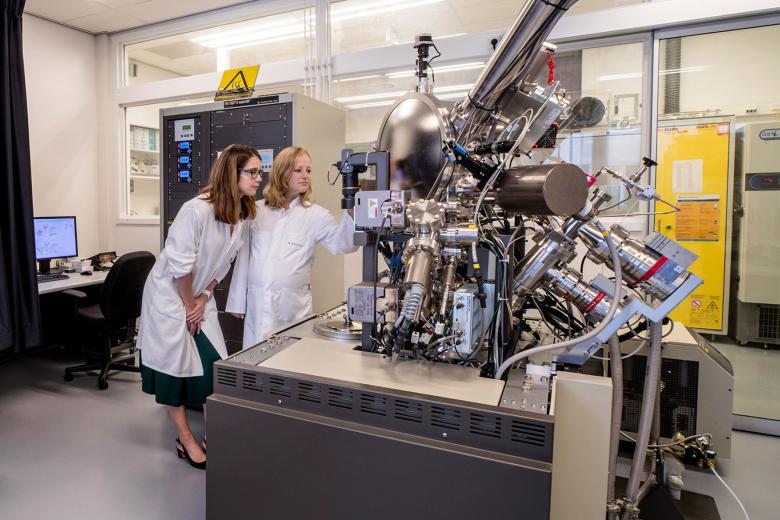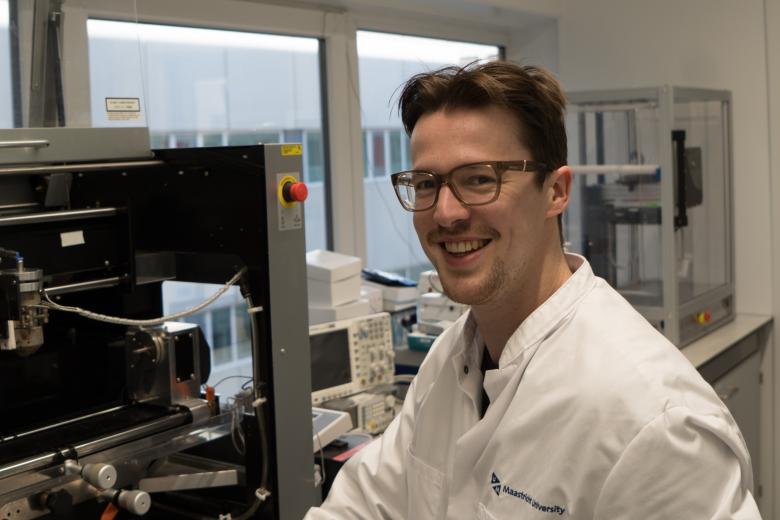Seek shade, cover up, use sunscreen: sun behaviour and skin cancer
At the Faculty of Health, Medicine and Life Sciences, staff and students strive to make a difference. For instance, Latifa does research together with citizens, and Caroline focuses on sun protection. In 'Nice to meet you' these individuals introduce themselves and share their work within FHML.
The month of May is dedicated to raising awareness about skin cancer, the most common type of cancer in the Netherlands. Protecting yourself from the sun from an early age can reduce the risk of developing skin cancer, but how do you do that? Yara Sievers is a PhD candidate at the department of Health Promotion within CAPHRI, and she is researching sun behaviour in the Netherlands. Yara: “It would be great if we can raise more awareness with this research.”
After completing a bachelor's degree in communication sciences, Yara pursued a master’s in health sciences. “I was really interested in the combination of health, communication, and behavioural change, and that all comes together in my PhD,” she explains. “My research focuses on skin cancer prevention. We are looking at how to improve people’s sun protection behaviour in the Netherlands, as that is one of the biggest factors in skin cancer prevention. Sun protection behaviour includes three key actions: seeking shade, covering up with clothing, hats or caps, and sunglasses, and applying sunscreen. These are the three behaviours we aim to encourage in the Netherlands.”
Campaign
Yara’s PhD is part of a grant provided by the Ministry of Health, Welfare and Sport to the Dutch Skin Foundation (Huidfonds). “We are advising on a national public campaign aimed at raising awareness around sun behaviour and skin cancer. This year, the campaign has been visible since April on social media, television and radio,” she says. “In addition, we are looking at groups with a higher risk of developing skin cancer. These include parents with young children, young people, outdoor athletes, and outdoor workers, such as construction workers. We want to better understand how to reach these target groups.”
Tanning
Yara is also researching environmental factors around sun behaviour, such as sunscreen dispensers in the physical environment. “These are posts where you can get free sunscreen from, which can be a solution for people who forget to bring sunscreen themselves or run into financial barriers,” she explains. “We are also looking at the social environment, especially the perception surrounding tanned skin. Young people in particular like to tan, which is also reinforced on social media. I myself like to go out in the sun and I can tan quickly. Until a few years ago, I underestimated the dangers of that, and I think that is true for many of my peers. It would be great if we can raise more awareness and improve sun behaviour with this research.”
By properly protecting yourself from a young age, you can largely prevent skin cancer.
Preventing skin cancer
Skin cancer is the most common type of cancer in the Netherlands. Lung cancer is in second place. Yet lung cancer is talked about more often than skin cancer. “That might be because it is usually treatable, although that really depends on the type and how early it is detected,” Yara explains. “By properly protecting yourself from a young age, you can largely prevent skin cancer. The way you expose yourself to the sun now often does not show its effects until many years later, so it takes a long time before you notice the harmful consequences.”
Australia
Last year, Yara attended a major conference on skin cancer prevention in Australia, where she also presented her research on sunscreen dispensers. “Australia is estimated to be about 30 years ahead in skin cancer prevention,” she says. “They have had effective campaigns for years, so there is a lot to learn there. In addition to the conference, I visited the University of Melbourne and the Cancer Council. I spent a day with them and learned a lot about effective behaviour change techniques for this health problem. After the conference, I travelled around the country with my brother. We hired a camper van and drove along the east coast.”
Protection
Yara hopes her research will contribute to greater awareness of the dangers of sun exposure. “It affects the entire population,” she says. “I would like to convey the message that it is very easy to protect yourself from the sun. Maybe you can spend just half an hour less in the sun, or put on those sunglasses after all. With all these small adjustments we can still make a big difference.”
Text: Joëlle van Wissen
Also read
-
UM to play a more prominent role in Dutch scientific infrastructure
Eleven consortia from various scientific disciplines are set to launch projects of great value to science. The Dutch government is making a total of €197 million available for this purpose. Scientists from Maastricht University (UM) are closely involved in seven of the eleven projects.

-
17 million for Dutch mega cohort: working together to build healthier ageing
MUMC+ is main applicant in the NCC: a unique research infrastructure with data from almost half a million Dutch citizens.
-
Letting bone and cartilage repair themselves
Tim ten Brink focuses on developing implants for damaged bone and cartilage, so eventually there is less need for invasive surgery.
